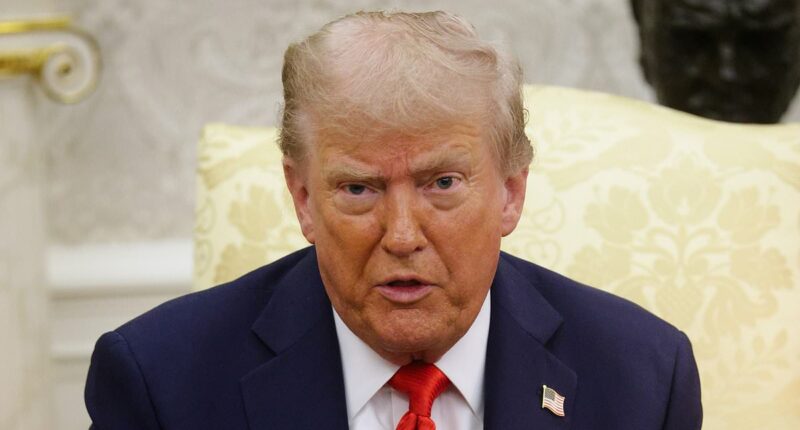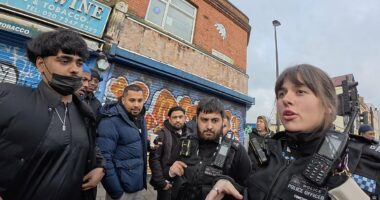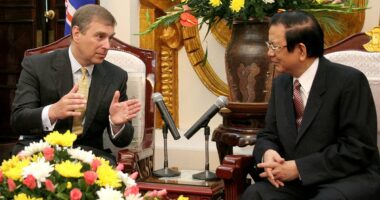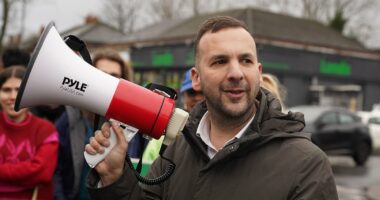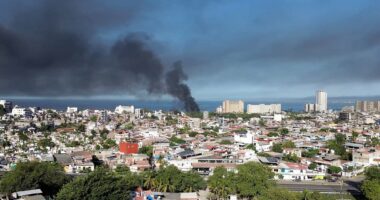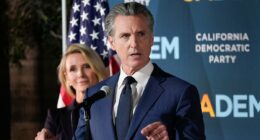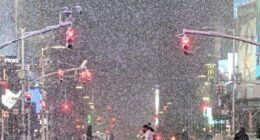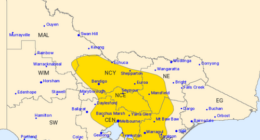Share this @internewscast.com
Immigration officers will now be equipped with firearms as they distribute visas and green cards, in a heightened measure under Donald Trump’s strategy to tackle illegal immigration.
The White House said on Thursday it is forming an armed police force within US Citizenship and Immigration Services.
The agency plans to bring on ‘special agents’ to ‘investigate, arrest, and pursue legal action against individuals who breach U.S. immigration laws,’ as stated by USCIS in a statement.
The law enforcement agents will be trained to spot fraud in immigration applications and arrest the immigrants and lawyers involved.
Critics of the move said the it could have a chilling effect on immigrants’ willingness to submit their information to the agency.
Nevertheless, the new agency leader Joe Edlow dismissed these worries, telling the Wall Street Journal: ‘I anticipate this will deter bogus applications, which is exactly my goal.’
Edlow also said the agents will also prioritize the denaturalization of new citizens who lied on their applications.
This initiative is the latest in a sequence of directives from the White House aimed at curbing illegal immigration and targeting those who are believed to have invalid visas.

The White House announced it is establishing an armed enforcement unit within US Citizenship and Immigration Services as a part of their effort to control illegal immigration.

Joe Edlow, the new head of US Citizenship and Immigration Services, also noted that these agents will focus on revoking citizenships from individuals who were dishonest in their applications.
Since President Donald Trump took office, his administration has focused on deporting migrants illegally in the United States, as well as holders of student and visitor exchange visas.
Last month, the White House said it was reviewing more than 55 million people who have valid US visas for any violations that could lead to deportation.
In a written answer to a question from The Associated Press, the State Department said all US visa holders, which can include tourists from many countries, are subject to ‘continuous vetting,’ with an eye toward any indication they could be ineligible for permission to enter or stay in the United States.
Should such information be found, the visa will be revoked, and if the visa holder is in the United States, he or she would be subject to deportation.
The State Department said it was looking for indicators of ineligibility, including people staying past the authorized timeframe outlined in a visa, criminal activity, threats to public safety, engaging in any form of terrorist activity or providing support to a terrorist organization.
The U.S. also stopped issuing worker visas for commercial truck drivers, Secretary of State Marco Rubio said last month on X. He said the change was effective immediately.

Since President Donald Trump took office, his administration has focused on deporting migrants illegally in the United States as well as holders of student and visitor exchange visas

LAX police officers Errol Priestley, left, and Will Lara, right, patrol Tom Bradley International Terminal with an assault rifle
The administration has steadily imposed more restrictions and requirements on visa applicants, including requiring them to submit to in-person interviews.
The review of all visa holders appears to be a significant expansion of what had initially been a process focused mainly on students who have been involved in what the government perceives as pro-Palestinian or anti-Israel activity.
Officials say the reviews will include all visa holders’ social media accounts, law enforcement and immigration records in their home countries, along with any actionable violations of US law committed while they were in the United States.
The reviews will include new tools for data collection on past, present and future visa applicants, including a complete scouring of social media sites made possible by new requirements introduced earlier this year.
Those make it mandatory for privacy switches on cellphones and other electronic devices or apps to be turned off when an applicant appears for a visa interview.
